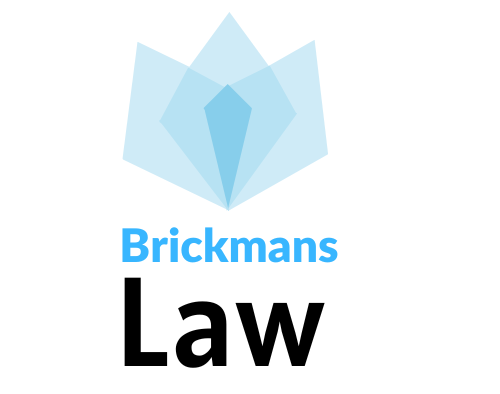Child Custody and Support in Nigeria: Legal Principles and Judicial Trends
In Nigeria, Child Custody and Support are governed by a combination of statutory laws, customary laws, and judicial precedents. It is a critical aspect of family law in Nigeria, influencing the welfare and development of children after the dissolution of a marriage or separation of parents. This article explores the legal principles guiding child custody and support in Nigeria and examines recent judicial trends shaping our legal system.
Definition of Custody
There is no definition for the term “custody” in the Matrimonial Causes Act (MCA) or the Children’s Rights Act (CRA). According to the Black’s Law Dictionary, custody is defined as “the care, control, and maintenance of a child awarded by a court to a responsible adult. Custody involves legal custody (decision-making authority) and physical custody (care-giving authority), and an order of custody usually grants both rights.1
Fundamentally, custody encompasses the rights parents have over their children. This includes the right to make key decisions affecting the child, such as those regarding education, religion, and medical treatment. The parent who has the right to exercise care and control over the child is known as the “custodial parent.” The parent who does not have this right is known as the “non-custodial parent.” Despite not having care and control rights, the non-custodial parent is usually granted access to the child. The custodial parent has the duty to ensure, protect, and promote the child’s best interests. Notably, under relevant laws, the custodial parent is not obliged to seek the non-custodial parent’s opinion on major decisions affecting the child.
Types of Custody
- Physical Custody: This refers to the parent with whom the child primarily resides and spends most of their time.
- Legal Custody: This entails the right to make decisions about the child’s upbringing, such as education, health care, and religious instruction. A parent with legal custody has the authority to make significant decisions affecting the child’s life.
- Sole Custody: Also known as full custody, this term refers to one parent having both physical and legal custody of the child. To obtain sole custody, a parent must demonstrate that the other parent is unfit and incapable.
- Joint Custody: This involves both parents sharing physical and legal custody of the child. Both parents participate in making decisions about the child’s upbringing and share responsibilities for the child’s care. In joint custody arrangements, parents must agree to a parenting plan that allows the child to spend time with each parent.2
Legal framework Governing Child Custody and Support in Nigeria
In Nigeria, child custody and support are regulated by a blend of statutory laws, customary laws, and judicial interpretations. The primary statutory provisions are found in the Child’s Rights Act (CRA) 2003, Matrimonial Causes Act (MCA) 1970, and Customary and Islamic Laws, which vary by region and cultural context.
Child’s Rights Act (CRA) 2003: The Child’s Rights Act is the most comprehensive statute on child welfare in Nigeria, incorporating international standards from the United Nations Convention on the Rights of the Child (UNCRC). It emphasizes the best interest of the child as the paramount consideration in all decisions affecting children, including custody and support. However, the CRA is only applicable in states that have domesticated it, leading to disparities in its application.
Matrimonial Causes Act (MCA) 1970: Under the MCA, the courts have the discretion to make custody and support orders during divorce proceedings. The act provides for maintenance of children, with considerations including the financial capacity of the non-custodial parent and the needs of the child.
Customary and Islamic Laws: states where customary and Islamic laws are predominant, child custody and support are influenced by local customs and religious doctrines. For instance, under Islamic law, custody (known as Hadanah) typically rests with the mother for young children, but guardianship (financial responsibility and decision-making) remains with the father. Customary laws vary widely among ethnic groups, often reflecting patriarchal norms where fathers are traditionally favored as custodians.
Principles which guide the Award of Custody
Section 71(1) of the MCA 1970 requires the court in matter of custody, guardianship, welfare advancement and education of the child, “to regard the interests of children as the paramount consideration”3 In Williams v. Williams4 , Karibi-Whyte. J.S.C in dealing with the interests of children observed:
“The determination of the welfare of a child is a composite of many factors. Consideration such as the emotional attachment to a particular parent, mother or father; the inadequacy of facilities such as educational, religious, or opportunity for proper upbringing, are matters which may affect the determination of who should have custody. What the court deals with is the lives of human beings and ought not to be regulated by rigid formulae. All the relevant factors ought to be considered and the paramount consideration being the welfare of the child. By paramount consideration, I mean pre-eminent and superior consideration. In Re L (infants) (1962) 3 All E.R.I., it was held that ‘ paramount’ does not mean exclusive. So, regards should be paid to considerations other than the predominant factor.”
The Courts have established criteria for determining what is in the child’s best interests. In Williams v. Williams, Per Obaseki JSC:
“It seems to me that an order for custody must consider the opportunity for sound education as well as physical and mental welfare. A parent who will deny these to his or her child is not worthy of an order for custody from the court.” 5
This means that the court will grant custody to a party who can demonstrate the ability to provide for the child’s physical and mental well-being and sound education. The party seeking custody must also show the other party’s inability to meet these needs.
The conduct of the party seeking custody is another significant factor. In Williams v. Williams (supra), the court held that while the welfare of the child is paramount, it is not the only consideration; the conduct of the parties is also relevant. To strengthen their claim, the party seeking custody must demonstrate an impeccable character and show misconduct on the part of the opposing party. lthough proving the other party’s bad character may be sufficient, it is preferable if the claiming party can show a record of impeccable character.
The age of the child is also considered in custody decisions. It is established that a child’s tender age does not automatically result in custody being awarded to the mother. In Otti v. Otti6 , the court held that:
“In considering the child’s interest as paramount, there are several well-settled factors. For instance, there is no strict rule that a child of tender years should remain in the custody of the mother.”
Concerning the sex of the child, while there is a common belief that the custody of a girl will be vested in the mother and that of a boy to the father, there is however no law enforcing this. Custody decisions are based on the circumstances of each case. The relevance of the sex of children in custody cases came up in the Nigerian context in Oyelowo v Oyelowo7 in that case, both parents applied for custody of the two male children of the marriage aged ten and nine years respectively. The children lived with their mother for two years since the separation of their parents. The trial judge held that:
“As male children, their rightful and natural place is their father’s home. It does not matter how long they stay away from it, they will one day long for it.”
On appeal, Nnaemeka-Agu, JCA (as he then was) agreed with the opinion of the trial judge that boys’ should be left to their father because in the Nigerian context, they rightfully belong to his family. However, Kutigi, JCA (as he then was) took the opposite view. In his opinion the words of section 71 must be interpreted strictly without extraneous considerations. The learned Justice regarded the question of male child belonging to his father’s family as extraneous fact which “valid as they may sound under the Nigerian situation, have no relevance in the application of the Matrimonial Causes Act. 1970”.
The court also considers the child’s wishes when determining custody. Judges may inquire about the child’s preferences, especially if the child is old enough to express them. However, courts approach this carefully to ensure the child’s wishes are not unduly influenced by age or parental pressure.
Additionally, the court evaluates whether the party seeking custody has made adequate arrangements for the child’s welfare, education, accommodation, and upbringing. While a spouse’s financial status alone does not guarantee custody, a party with superior financial resources and a better living environment may be favored. Ultimately, the party providing the best living conditions for the child might be given preference. In Eziashi v Eziashi8 The learned trial judge stated the position thus:
“The financial position of the parties is considered. Other things being equal, the fact that one spouse is in a much better financial position to bring up the child may be decisive. Moreover, the party who is in a better position to offer the child good accommodation may be preferred.”
In Dawodu v Dawodu9 the court refused to grant custody to a mother who had no home of her own or private means to bring up the child because it was not in the best interest of the child to do so.
The court also addresses custody issues for children born out of wedlock. In Muojekwu v. Ejikeme, the Court of Appeal provided guidance on custody for such children. It was held that custody of a child born out of wedlock generally rests with the mother unless another party claims custody as the natural father. The child’s welfare is the primary consideration. If no evidence disqualifies any parties from custody, the court will award joint custody. The court may grant visitation rights to the opposing party if custody is denied to that party. The court may also place the child in the custody of a person other than a party to the marriage in situations where neither parent is capable of retaining custody of the child.
The question of taking a child outside the jurisdiction of the court, the Nigerian courts do not discriminate between Nigerian and non-Nigerian parents in the award of custody. The interest of the child is considered paramount. In Oloyede v Oloyede10 It was held that the fact that the mother of the child was not a Nigerian (Irish) did not justify the award of custody to a father who the court found to be unfit.
Child Support/ Order for Maintenance
Child support is typically provided by the non-custodial parent to ensure the child’s welfare. Under Section 70 of the MCA the court has a general power to make maintenance order with respect to the children of the marriage. But that power cannot be exercised for the benefit of a child who has attained the age of twenty-one years unless the court is of the opinion that there are special circumstances which justify the making of such an order.11 The amount is determined by the parent’s financial capacity and the child’s needs, including education, healthcare, and general upkeep.
Judicial Trends in Child Custody and Support
1. Gender Bias and Changing Attitudes: Historically, Nigerian courts favored mothers in custody disputes, particularly for young children, based on the presumption that they are naturally better caregivers. However, recent judicial trends show a shift towards a more balanced approach, where custody decisions are based on the child’s best interest rather than gender stereotypes.
2. Increasing Recognition of Joint Custody: There is a growing judicial preference for joint custody arrangements to promote co-parenting and the involvement of both parents in the child’s life. Courts now recognize that children benefit from maintaining a relationship with both parents, leading to more shared parenting orders.
3. Customary and Religious Influences: In jurisdictions governed by customary and Islamic laws, cultural and religious norms continue to influence custody and support decisions. This often leads to conflicts with the CRA’s provisions, especially in states where the CRA has not been domesticated. For example, under Islamic law, boys are typically placed under the father’s guardianship once they reach a certain age, while girls remain with the mother until marriage.
4. Judicial Activism and Progressive Interpretations: Nigerian courts have increasingly adopted progressive interpretations of the law to protect children’s rights. In cases where customary laws conflict with the best interest of the child, courts have ruled in favor of statutory provisions under the CRA. This trend reflects a growing commitment to upholding international human rights standards.
Challenges and Recommendations
1. Inconsistent Application of Laws: The dual legal system in Nigeria leads to inconsistencies in the application of child custody and support laws. The non-domestication of the Child’s Rights Act in some states creates disparities in judicial outcomes. A harmonized legal framework is needed to ensure uniformity and protect children’s rights across all regions.
2. Cultural and Religious Constraints: Deep-rooted cultural and religious beliefs continue to influence custody and support decisions, sometimes undermining statutory provisions. Public awareness campaigns are necessary to educate communities on the importance of the best interest principle.
3. Enforcement of Child Support/ Maintenance Orders: Enforcing child support orders remains a challenge, with many custodial parents struggling to obtain financial support. Strengthening enforcement mechanisms and establishing a centralized system for tracking payments could enhance compliance.
References
- Matrimonial Causes Act,1970.
- Black’s Law Dictionary, 8 th Edition,1992.
- E.I Nwogugu, Family Law in Nigeria, 3 rd Edition, 2014.







